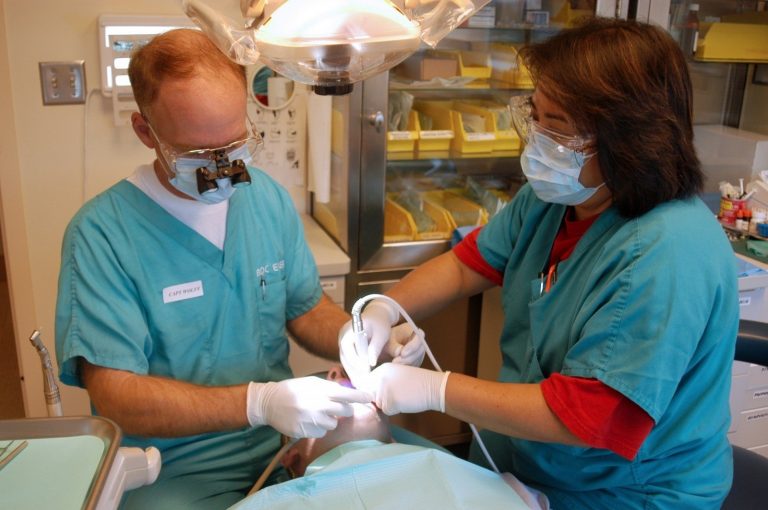
Going to the dentist can be offputting for some, but imagine if you were not confident about your dental staff’s education and training? Thankfully, when you visit an American Dental Association (ADA) member dentist you can be sure he or she has been properly educated, trained, and tested to treat you fairly and without harm. ADA standards are in place to ensure the highest level of patient safety and professional satisfaction.
Each dentist follows a specific code of conduct established by the ADA. The code of conduct ensures an impeccable standard of care. It states in no uncertain terms that it is your dentist’s duty to keep you safe and healthy. That means dentists complete many hours of training and continuous education to keep their skills up to date.
Beyond knowledgebase, your dentist is trained to give you the best possible care without discrimination, based on a relationship of trust and honesty. Your dentist will strive to provide timely, high-quality treatment while always considering your individual needs and values. The code of conduct ensures that you have the right to be involved in decisions about your treatment and for those decisions to be confidential.
To become a general dentist, you must attend eight years of college. First, students earn a four-year bachelor’s degree. Then, they must pass the Dental Admissions Test before applying to dental school. The first two years of dental school are dedicated to classroom study and laboratory assignments. The final two years are focused on clinical experience under the supervision of practicing dentists. Additional post-graduate training is required to become a dental specialist, such as an orthodontist, endodontist, or periodontist.
After graduation, each dentist must pass both the national written exam and any required state and regional clinical exams in order to become licensed and able to practice professionally. To maintain a license, dentists must meet continuing education requirements for the entirety of their careers to stay up to date on the latest scientific and clinical developments.
Patient Selection & Privacy
Dentists have a duty to treat people fairly and to provide quality care regardless of any medical condition. Included in the ADA Principles of Ethics and Code of Professional Conduct, no dentist can reject patients or deny dental service on the grounds of his or her race, creed, color, sex or national origin. Patients are also entitled to their privacy. Dentists are required to keep health records confidential even if you decide to change dentists.
Referrals and Truthfulness
Trusting your dentist is of utmost importance; there are several standards dedicated solely to truthfulness. Your dentist has a duty to be honest in all areas of practice, which includes billing and referrals. It is unethical for a dentist to increase a fee for a patient or recommend unnecessary services solely because it is covered under a dental benefits plan. It is also unethical for your dentist to have a financial interest when referring you to a specialist for future treatment. These rules are in place to foster trust and ensure the best individual care is being provided.
Ability to Practice
It goes without saying, but it is unethical for a dentist to practice while abusing controlled substances, alcohol or anything else that can impair his or her ability to perform. Dentists who contract any disease or become impaired in any other way that could endanger dental staff or patients are required to cease practicing until a resolution is found.
Patient Relationships
Dentists are instructed to avoid interpersonal relationships that could impair their professional judgment. This rule is also in place to avoid the possibility of exploiting the confidence placed in them by a patient. That being said, dentists are trained to be very attentive of patients. Dentists are expected to look for signs of abuse and neglect and to immediately report any instances of suspected mistreatment to the proper authorities.
Infection Control
Dental offices come into contact with blood, saliva, and other potentially infectious materials each week. Therefore dentists have an ethical obligation to inform immediately any patient who may have been exposed. It is up to the dentist to refer the patient to a qualified health care practitioner.
Emergencies
Dentists are expected to make reasonable arrangements for the emergency care of their patients. This may mean performing the care themselves or recommending another dental professional to attend to the manner as quickly as possible.
Deciding to pursue a profession in dentistry is no small decision. ADA dental professionals complete rigorous education standards and abide by a lengthy set of ethical and conduct requirements. Visit us at the Dental Care Center and let us know how we’re doing.